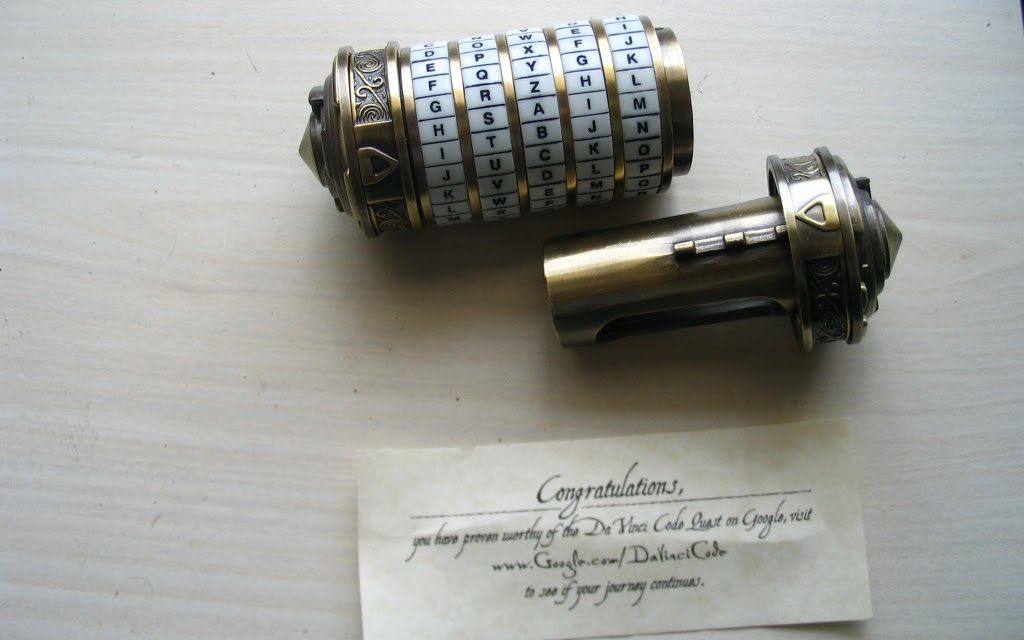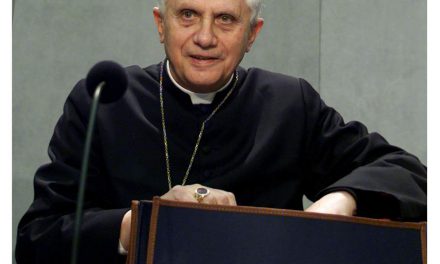Da Vinci Code Review
By Dr. Mark D Roberts

Two anagrams, ‘O drink the can of creedal soda’ and ‘I condemn a boring court tyrant’ are the key to understand the movie The Da Vinci Code, writes Mark D Roberts.
My brief review came in the form of two anagrams:
O drink the can of creedal soda.
I condemn a boring court tyrant.
When correctly unscrambled, these read:
I declare: So dark the con of Dan.
Nice try, Ron and Tom, but no cigar.
Let me explain a bit further what I mean.
I declare: So dark the con of Dan.
As I'm sure you know, this line is a slightly-tweaked version of a key line from The Da Vinci Code: "So dark the con of man." This is what the dying Jacques Saunière scrawled on the Plexiglass protecting "The Mona Lisa." In the novel, Robert Langdon explains its meaning in this way:
"Sophie," Langdon said, "the Priory's tradition of perpetuating goddess worship is based on a belief that powerful men in the early Christian church 'conned' the world by propagating lies that devalued the female and tipped the scales in favor of the masculine." (p. 124)
Later we learn that this "con" concerns the true nature of Jesus, who was not divine, and who was the husband of Mary Magadelene and father of her child. This "con," according to The Da Vinci Code, is responsible for many of the world's worst ills, thus explaining the con's darkness. But, as it turns out, "So dark the con of man" is also an anagram for Da Vinci's painting Madonna of the Rocks, behind which Saunière had placed a crucial clue.
In my opinion, The Da Vinci Code movie deserves the epitaph: "So dark the con of Dan." First of all, after seeing Dan Brown's story played out on the big screen, I was impressed by the darkness of his vision. In this story, Christianity is based on a colossal lie, and this lie is responsible for terrible things, the Inquisition writ large across the pages of human history. True or not, this is a dark vision, dark in it's lack of truthful light, and dark in its estimation of Christianity. (The movie does try to lighten it up a bit, as I'll explain below.)
Of course I don't believe Dan's vision is true, which is why I call it a con. He is conning the millions of people who take his wild, shadowy fiction as if it were historical truth.
Some of Brown's critics believe he made up all of this stuff out of some hatred for orthodox Christianity in general and the Roman Catholic Church in particular. Surely he's none too fond of Opus Dei, that's for sure! But, given what he has said publicly, it seems as if Dan Brown actually believes that his dark fiction reflects the truth that needs to be revealed. His generous use of the pseudo-historical Holy Blood, Holy Grail, for example, appears to have had a significant impact on Brown's view of history. Thus I believe that the "con of Dan" is not only a matter of his deceiving others, but also of his being deceived by scholars and pseudo-scholars whose anti-Christian bias has colored their writings. Brown seems to have been hoodwinked into believing the dark tale that underlies his novel. Thus "the con of Dan" runs in two directions.
The rest of my review was summarized in another anagram: "I condemn a boring court tyrant." This becomes, "Nice try, Ron and Tom, but no cigar." I'll explain what I mean by this line.
Nice try, Ron and Tom, but no cigar.
Tom Hanks is probably my favorite actor. I loved him in Splash, The Money Pit, Dragnet, Big, A League of Their Own, Sleepless in Seattle, Philadelphia, Forrest Gump, Apollo 13, Saving Private Ryan, You've Got Mail, and The Terminal (yes, even The Terminal). Few actors have given me more laughs and, at other times, have moved me more deeply than Tom Hanks. I must confess that I was less than pleased when I learned that Hanks had taken the role of Robert Langdon, since I've never been a fan of The Da Vinci Code.
I've loved Ron Howard virtually my whole life, since I cut my television teeth on The Andy Griffith Show, where Howard played the beloved Opie Taylor. Howard directed several fine movies, including, Splash, Cocoon, Parenthood, Backdraft, Apollo 13, Ransom, A Beautiful Mind, and Cinderella Man. So I wasn't too keen on having Opie associated with The Da Vinci Code either. Nevertheless, I figured that the combination of Hanks and Howard, combined with Ian McKellen and Jean Reno, would surely produce a fine cinematic version of Brown's runaway bestseller.
My conclusion after having seen the movie: "Nice try, Ron and Tom, but no cigar." As you can tell, I'm a bit more positive than many critics, but not as jubilant as many moviegoers.
Why "nice try?" Well, I think they did many things well. The locations were fantastic (filming inside of the real Louvre, for example!). The actors were well-matched to their roles (except, perhaps, for Hanks). Several actors did a fine job, including Ian McKellen, Audrey Tautou, and Jean Reno. The alterations to Dan Brown's original story were sensible and, in some ways, made the story more believable, not to mention less offensive to Christian viewers. I found the movie modestly enjoyable, overall. What I found most fun, I must confess, was trying to figure out what was new in the film, what changes were made, and what had been left out.
The movie's weaknesses, apart from matters of theology and history, are several, including: excess length, dragging in the second half, and paper-thin characters. But, in defense of Ron Howard, I'd say that these faults are inherent in Brown's novel. Roger Ebert, in his overall "thumbs-up" review (hat tip: Nathan Roberts) of the movie, rightly notes, "Luckily, Ron Howard is a better filmmaker than Dan Brown is a novelist." Once you get through Brown's remarkable cleverness, there's not much there, not enough to sustain a two-and-a-half hour movie, at any rate.
I was impressed by the attempt of the moviemakers to clean up what many Christians find offensive in the novel. Before I saw the film, I had said that, if I were Ron Howard, I'd do this very thing. Once again, I would say today, "Nice try, but no cigar." The problem is that the essential story of The Da Vinci Code requires the fictions of Jesus's marriage to Mary, the deceptive foundations of Christianity, and the conspiratorial Catholic Church. You just can't sweep these under the cinematic rug.
Yet Howard and company worked hard to tidy things up. How? I caught several items as I viewed the film:
While the novel's protagonist, Robert Langdon, is anti-Christian and an enthusiastic proponent of paganism, the film's Robert Langdon is a lapsed Catholic who is not especially fond of paganism and who seems to have a soft spot for Christian faith.
While in the novel Langdon gangs up with Leigh Teabing to reveal the secrets of Mary and the Grail to Sophie, in the film Langdon challenges Teabing at points and seems somewhat skeptical of Teabing's scenario.
In the novel, the Vatican itself knows that its power is based on a lie, and is willing to kill in ord
er to maintain its power. In the film, the Catholic bad guys are the "Council of Shadows." Vatican officials appear to be deceived, but not deceptive murderers. Bishop Aringarosa is transformed from a well-intentioned victim of circumstance to a plotting, self-centered, potential murderer. (But what would you expect from Doc Ock?)
The film does not include many of the most offensive lines from the book, such as Leigh Teabing's doozy: "almost everything our fathers taught us about Christ is false." (p. 235)
Many negative statements about Christianity are made in the film, but almost all of them by Leigh Teabing, who is portrayed as being obsessive to the point of potential insanity. Teabing's excess is balanced by Langdon's uncertainty.
Perhaps the church should check more carefully into the backgrounds of its bishops.
Nevertheless, if one knew very little about Christianity, and if one were inclined to believe what The Da Vinci Code movie portrays, then one would walk away from that movie believing, not only that Jesus and Mary had a child, but also that Christianity is based on a lie, that the truth about Jesus is to be found in the earlier, non-canonical gospels, and that the Catholic Church (or at least key elements of it) is power-hungry and ruthless. Curiously, the ending of the film leaves open the question of whether or not the world would be better off knowing the truth about Jesus. A similar point is made in the novel by Robert Langdon (p. 342), but not at the crucial dénouement of the story.
So, for the reasons I've noted and several others, I can't give Ron and Tom a cigar for The Da Vinci Code movie. I must confess, however, that I wasn't exactly rooting for them in the first place. Though I appreciate their effort to erase some of the novel's disparagement of Christianity, the bottom line of The Da Vinci Code, in whatever medium, is still a dark, anti-Christian vision.
Copyright 2006 Mark D Roberts (www.markdroberts.com). The article was first published in www.markdroberts.com. Reprinted with permission.
{moscomment}







